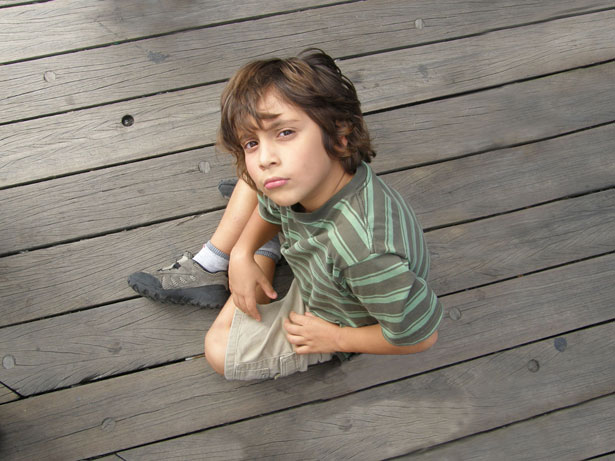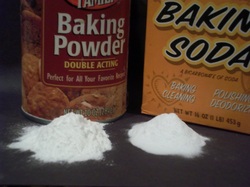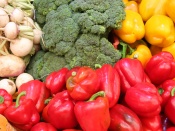I'm sorry, Nestle and others are misguided.
You cannot end poverty without the people improving their own situation- which can only be done by either consuming less than you earn, or earning more than you consume. Where do the money and goods come from, without lots of individual effort?
I grew up on a farm. I wasn't happy with that fact until the year before I graduated, when I realized how much of a blessing that hard work had been. I also saw my parents work harder than I had. When it was hay-baling time, that hay had to be baled at exactly the right stage or it lost nutrition. On top of that, we had to work around the weather. If it rained, we had to either wait for the hay to dry out, or bale it quickly before the storm hit. My dad worked 16-hour days during the summer to begin with, and that extended up to 24-30 hours straight during baling. We older kids had to be out the door by 6 a.m. the whole summer to move sprinkler pipes: quarter-mile long systems made of forty-foot lengths of aluminum, each needing to be unhooked, carried forward 40 feet through tangles of knee-high alfalfa, hooked back together, and turned on. I drove tractors, planted acres of grain, learned to shoot a rifle (at ground squirrels destroying our irrigating system), tossed heavy hay bales, bottle-fed calves in minus-30-degree weather, slogged through early-spring mud, lost boots and socks to mud holes in fields-- and learned to stop, think, notice, and appreciate better what was around me. The summer of my junior year in high school, I saw that not only had the work helped shape my attitude and outlook, it also gave me a chance to work together with my family, strengthening ties and accomplishing mutual goals.
Too many times our good intentions, forced on others, lead to serious deterioration of a nation. The extent to which our own nation has mandated child labor laws has resulted in a nation of young and middle-aged people with a serious entitlement mentality. They don't understand that progress and prosperity have long, hard work at their core, and believe too often that someone else should provide for them. Take the Occupy Wall Street group, for instance. Or nearly any liberal/progressive.
I wish that my children had the opportunity to spend long days harvesting cacao pods- or strawberries- or whatever else bureaucrats think is "too hard". It's difficult for me, as a citydweller, to find enough work for them to keep their minds and bodies healthy. They can't get official "jobs" until they're 14 or 16, by which time many of their lifetime habits have already been developed. I've been surprised when my children think it's "too hard" learning to ride a bike, or to learn their math facts, or anything that has delayed gratification. Hard work not only develops muscle and sinew but character and tenacity.
Justice William O. Douglas stated, “Those in power need checks and restraints lest they come to identify the common good from their own tastes and desires, and their continuation in office as essential to the preservation of the nation."
Nations go through challenging times, it's required of everyone to work or to stay in spiraling poverty.
Work is not a bad thing. People emerge stronger.
________________________
More than 150 years ago, a French economist wrote about the same thing, declaring that only bad economists confine themeselves to the visible effect. Here's an excerpt from Frederic Bastiat's "What Is Seen and What Is Not Seen". It's brilliant. You can read the entire excerpt at http://www.thefreemanonline.org/features/what-is-seen-and-what-is-not-seen-2/ or the whole essay at http://bastiat.org/en/twisatwins.html
This excerpt is from the first chapter of Selected Essays on Political Economy, translated by Seymour Cain and edited by George B. de Huszar, published by the Foundation for Economic Education.
In the economic sphere an act, a habit, an institution, a law produces not only one effect, but a series of effects. Of these effects, the first alone is immediate; it appears simultaneously with its cause; it is seen. The other effects emerge only subsequently; they are not seen; we are fortunate if we foresee them.[1]
There is only one difference between a bad economist and a good one: the bad economist confines himself to the visible effect; the good economist takes into account both the effect that can be seen and those effects that must be foreseen.
Yet this difference is tremendous; for it almost always happens that when the immediate consequence is favorable, the later consequences are disastrous, and vice versa. Whence it follows that the bad economist pursues a small present good that will be followed by a great evil to come, while the good economist pursues a great good to come, at the risk of a small present evil.
The same thing, of course, is true of health and morals. Often, the sweeter the first fruit of a habit, the more bitter are its later fruits: for example, debauchery, sloth, prodigality. When a man is impressed by the effect that is seen and has not yet learned to discern the effects that are not seen, he indulges in deplorable habits, not only through natural inclination, but deliberately.
This explains man’s necessarily painful evolution. Ignorance surrounds him at his cradle; therefore, he regulates his acts according to their first consequences, the only ones that, in his infancy, he can see. It is only after a long time that he learns to take account of the others. Two very different masters teach him this lesson: experience and foresight. Experience teaches efficaciously but brutally. It instructs us in all the effects of an act by making us feel them, and we cannot fail to learn eventually, from having been burned ourselves, that fire burns. I should prefer, in so far as possible, to replace this rude teacher with one more gentle: foresight. For that reason I shall investigate the consequences of several economic phenomena, contrasting those that are seen with those that are not seen."
What's an example that you have seen of this principle?









 RSS Feed
RSS Feed